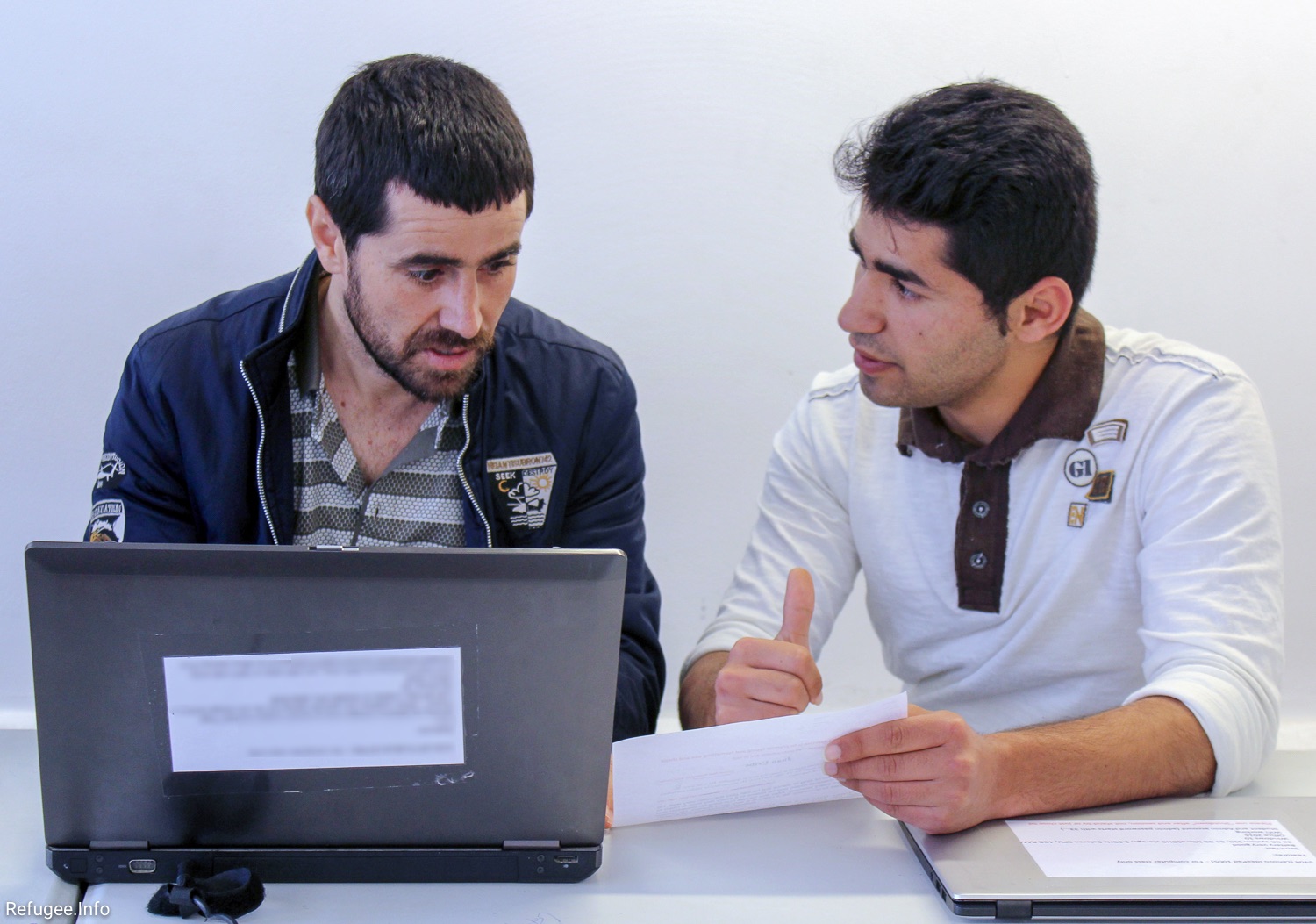If you’ve got an AFM, you must submit a tax declaration every year between April and the end of June — even if you didn’t earn any income. You can use this article to learn about:
- What to declare and when
- What happens if you miss the deadline
- How to declare taxes if you're married
- Where you can ask for help
Please note that Ukrainian Nationals who obtained the Temporary Protection card in 2023 are advised to contact an accountant and submit a tax declaration even if they didn't have income during 2023. For those that have arrived in Greece during 2023, you will need to declare your taxes this year.
If you have any more questions about declaring taxes in Greece, please don’t hesitate to message us on Facebook. We will do our best to get you answers as soon as possible.
Who needs to declare taxes
Everyone with a local tax registration number (AFM), including refugees and asylum-seekers in Greece, is obliged by Greek law to submit an income tax declaration annually.
For both recognized refugees and asylum-seekers (who eventually receive refugee status), declaring taxes is critical to accessing social benefits provided by the Greek state. To apply for certain benefits, such as rent and child allowance, you will need to prove that you've declared your taxes for the last 5 or 10 years.
How to declare
In the income tax declaration, you need to outline your income from the previous year.
If you don’t submit this on time or don’t submit this declaration at all, you will get fined.
Here is what you need to know:
- The deadline to submit an income declaration varies every year, but it is generally between April and June. Every year, this deadline is extended for a few more days, but this is only announced a couple of days before the deadline. Particularly, this year, it has been announced that there will not be any extension. Please make sure to contact an accountant so not to miss any deadline.
- You can only do it online by accessing the online TAXISnet platform.
- You first need to get a registration key ("kleidarithmos" in Greek), if you don’t already have one, by visiting the tax office where you received your AFM. You will need this key number to access the online TAXISnet platform.
What to declare
You need to declare any source of income you earned in Greece during the previous fiscal year between January 1 and December 31, working either as an employee or as a self-employed entrepreneur.
Filing this tax declaration is obligatory, even if you have zero income to declare.
Amounts exempt from tax or taxed especially:
- Selling assets such as real estate, cars, etc.
- loans
- donations
- lump sum retirement
- unemployment benefit
- child benefit
- social dividend income etc
If you are receiving cash assistance, you can declare it through this procedure. On the income declaration form, there is a field where you can enter amounts you received as assistance that are not taxable.
However, this isn't easy to do and here is why. If you declare your cash assistance, accountants should ask for an official statement showing how much you received during the previous fiscal year. Please contact Greece Cash Alliance helpline.
In the meantime, if you have noted down each payment you received through cash assistance, you can declare the total amount yourself on the tax declaration without any official statement. Though some accountants still won’t accept this without an official statement and will advise you not to declare it.
What do I do if I’m married?
If you are married, you have the option to either submit an income declaration jointly with your spouse or submit a tax declaration separately.
If your spouse has received his/her AFM from a different tax office (DOY), you can still submit the annual tax declaration together with both of your AFMs included.
Then taxes and contributions, if any, will be calculated separately for each one of you.
The tax clearance certificate
After you submit your annual tax declaration, you will automatically get a tax clearance certificate (“ekkatharistiko” in Greek), which you can print anytime through the online TAXISnet platform.
You may need a printed copy of this certificate in order to:
- Inform your personal details at a bank
- Rent a house
- Apply for some social benefits
- Register for social insurance, etc.
What if I miss the deadline?
You will get fined if you don't submit the income tax declaration within the deadlines. Fines are:
- € 100 for individuals
- € 250 for self-employed individuals who own a personal company
- € 500 for those who run a larger company with employees
An interest of 0.73% is added to the above fines for every month of delay in submitting the tax declaration.
Please note that there are some exceptions in which you don't get fined. For this, you need to advise an accountant.
Where can I ask for help?
You can hire a private accountant to prepare and submit the annual tax declaration on your behalf.
The estimated cost is from € 30 to € 50 for a simple, zero-income tax declaration. A larger fee is charged depending on your income tax declaration's complexity.
Alternatively, some organizations can support you for free.
The following organization can provide free consultation on how to access the online TAXISnet platform and submit your income tax declaration, but you need first to book an appointment with them:
- If you are in Athens, SolidarityNow – Athens Solidarity Center
- If you are in Thessaloniki, SolidarityNow – Blue Refugee Center
Best of luck, and make sure you get your paperwork in before the deadline!
